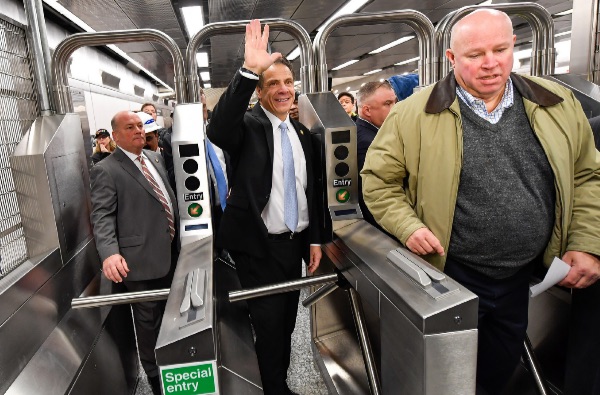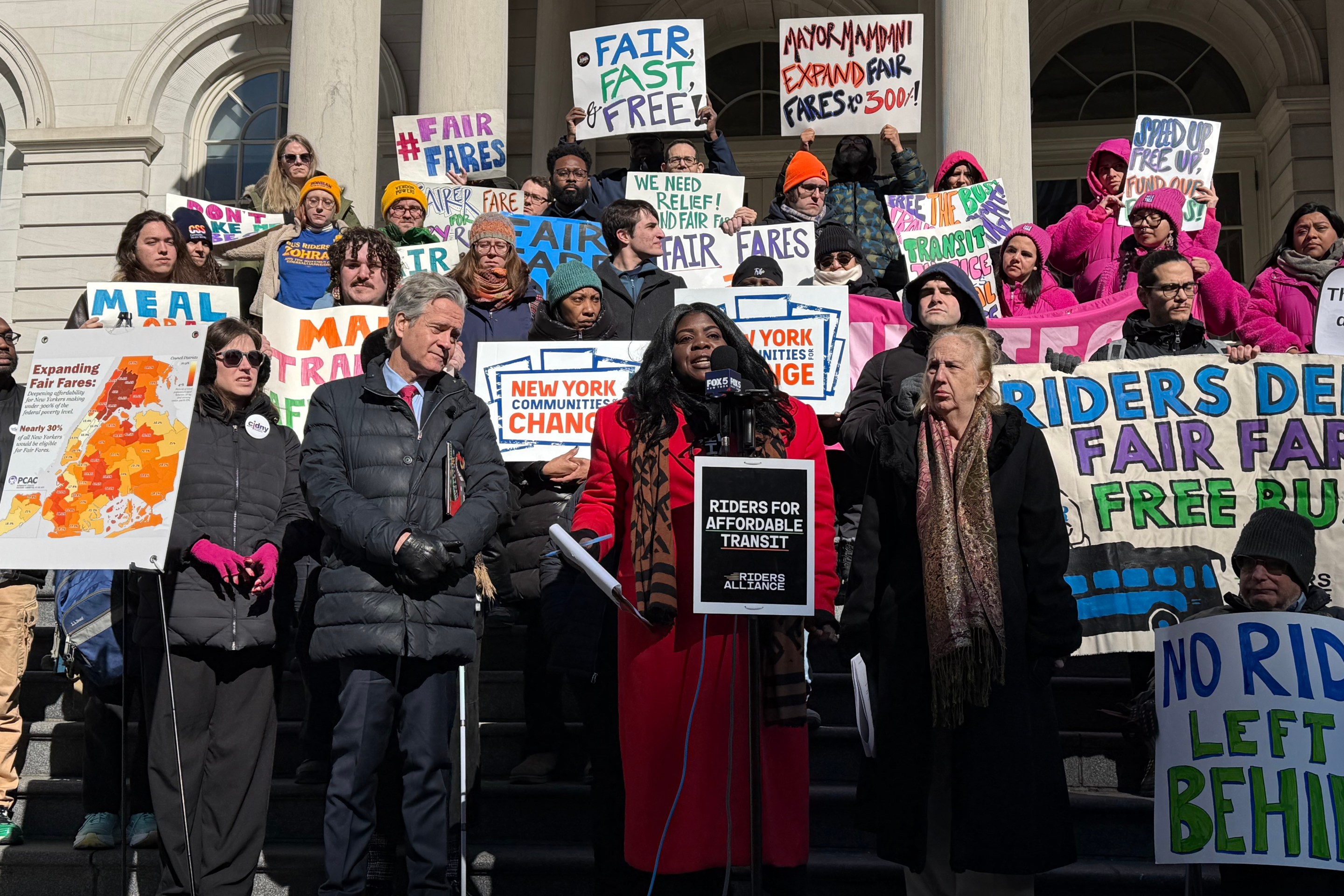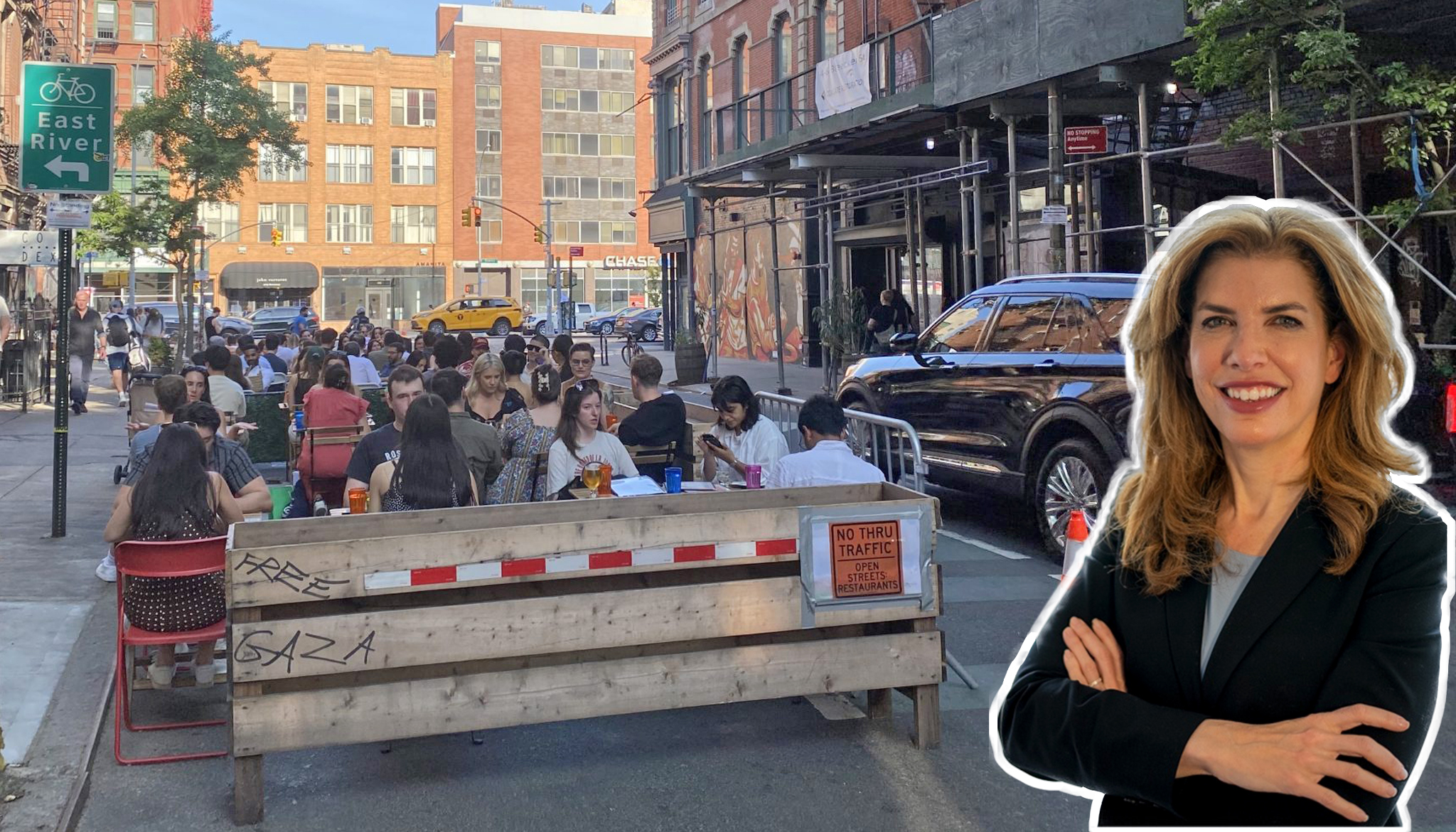Get ready for some Board games.
Three mayoral candidates said that they have had a better way to manage the relationship between New York City and the MTA Board during a Monday night forum on the next mayor and Albany politicking.
Albany Agenda forum host Ben Max asked eight candidates for mayor if they would try to change anything about the way that the transit agency was governed. Many of the candidates at the forum took the question as a chance to explain their thoughts on city control of the MTA, but three candidates (Comptroller Scott Stringer, former Bloomberg and Obama housing official Shaun Donovan and Brooklyn Borough President Eric Adams) said they would tweak or at least engage the MTA Board.
First, a bit of housekeeping: the MTA is overseen by a Board of 17 appointees: six members are appointed by the governor; four by New York City's mayor; one each from Nassau, Suffolk, Westchester; one each from Dutchess, Orange, Rockland, and Putnam counties (though those suburban members get one collective vote). There are also six non-voting seats held by representatives of organized labor and the Permanent Citizens Advisory Committee.
Inside man
Stringer sounded content to play the inside game and not try to make any major changes to the Board.
"Just because the state has the MTA, that doesn't mean the city appointees should be silent," the comptroller said during the forum. "We contribute a billion dollars to the MTA, and we should also be allowed on the Board to make sure this money goes to our infrastructure projects."
A vocal and united bloc of city representatives on the MTA Board brings to mind a weakness of City Hall transit policy that insiders kvetched about when then-DOT Commissioner and Board member Polly Trottenberg resigned her seat: no coordination. “She never was empowered by City Hall to get everyone on the same page,” is how one transit insider described Trottenberg's life on the MTA panel; Trottenberg was also apparently in the dark about the MTA subjects the mayor was talking to the governor about.
If Stringer really does want to do a more Bloomberg-style united front, he would, of course, risk ticking off Gov. Cuomo, a man who casual observers have noted does not much care for challenges to his power. It would also immediately put to the test Stringer's boast that the governor won't "take my lunch money." Stringer would also have to actually make political hay out of any potential appointees being held up by the governor, which this mayor never really did, instead leaving that up to advocates and the press to handle.
Still, the inside game could have merits according to good government groups, especially if Stringer was willing to expand it.
"The biggest opportunity the next mayor has under the current structure is to push for those members to meaningfully uphold their fiduciary duty to the authority, bond holders, and riders by pushing for more transparency," said Reinvent Albany Senior Researcher Rachael Fauss. "The Board members now frequently speak about not having enough time to review the financial plans, budgets, and capital plans before decisions are made. Together, they can use that to push for about greater transparency of MTA operations and spending before decisions are made."
Fauss specifically used the example of a lawsuit pitched by Dutchess County rep James Vitiello to challenge the governor's emergency powers around the Subway Action Plan, which was drafted but never filed. Those powers remain on the books, and though de Blasio's board reps in 2017 supported the idea, the mayor himself did not. If Stringer were to play the inside game, he'd have to throw some political muscle behind a challenge like that.
The trade market
Donovan suggested he was open to finding new ways for the MTA to get funding sources out of the city for capital programs, but that in exchange he'd like to see the city have additional Board seats.
"I would be willing as mayor, not just through congestion pricing, but through value capture and other mechanisms, to contribute more to the capital budget of the MTA in exchange for more seats on the Board, and specific reporting and other relationships with the head of the subways to be able to have more direct control there," Donovan said in response to the question.
Giving the city even a single additional board seat would be a lift, but just one additional seat wouldn't shift the regional balance of power anyway. Giving the city five seats, would give the city one more than the four votes that the commuter rail counties in the MTA service area have, but still leave it one short of the governor's six appointees. It's also unclear how much more power that would get the city, since the governor, and not the MTA Board, hires and fires the MTA Chair.
Still, advocates at least welcomed the offer of money.
"Anybody who wants to add more capital funding to the MTA is more than welcome to voice that opinion," said Lisa Daglian, the executive director of the Permanent Citizens Advisory Committee to the MTA.
A 'bastard' no more!
The biggest swing of the evening came from Adams, who proposed adding five new Board members, one voting seat for each borough, an idea that would effectively give New York City control of the MTA Board, and its limited power.
"When you do an analysis of the city of New York, we've been treated like the bastard child of this regional system," said Adams. "I believe having one additional person per borough would allow us to have a real voice."
Adams did not say he would trade anything for this idea that would give New York City a whopping nine voting seats on what would become a Board with 22 votes. Why the governor or state legislators who represent Nassau, Suffolk, Westchester, Dutchess, Orange, Rockland and Putnam Counties would want to do that is unclear, especially since Adams stressed that the city would still not accept any financial responsibility for the way the MTA works.
"As far as the political likelihood of changes to the MTA board happening — or the bigger question of municipal control — both require the sign-off of the legislature and the Governor. It is unlikely that Gov. Cuomo would totally or partially cede control given his micromanagement of the agency," Fauss said.
Daglian offered a kind of compromise idea to the candidates looking to add more seats to the Board, which was to give votes to some of the members who don't have a vote right now.
"Giving our members voting status would be a good representation of riders," Daglian said, suggesting that the candidates support the idea of giving voting power to the representatives from the New York City Transit Riders Council, the Metro-North Railroad Commuter Council and the Long Island Rail Road Commute Council. "Having our seats as voting seats doesn't shift the balance of who has more seats, since we represent the riders and not regions."
Other advocates though, suggested that the next mayor fiddling too deeply with the MTA Board was useless as long as the governor hires the head of the table.
"As long as the governor appoints the chair, the board is largely advisory," said Riders Alliance Policy and Communications Director Danny Pearlstein. "Members know only what top staff tell them. They have a bully pulpit, and the city appointees do use it to voice riders' concerns, but the governor sets policy. At the end of the day, riding subways and buses regularly is the best way for a mayor to stay in touch with New Yorkers and stand up for better public transit at the same time."






